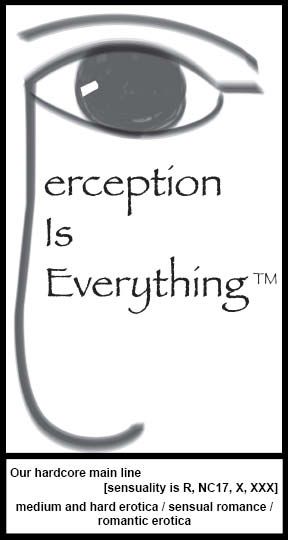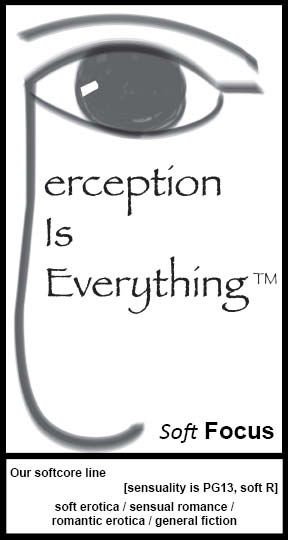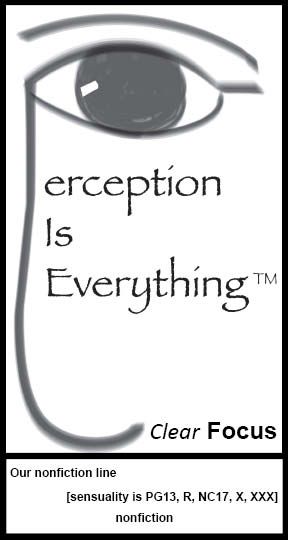So, is the show completely to mostly off book now--and, technically, yeah, since book six not out yet--or what...?
My opinion. Jon Snow is dead. Yay! He can be temporarily dead then breathe again, knowing he has served his full watch on the Wall and can now move on to higher, greater things to protect us all.
Like discovering that his dad was his uncle and that he is more closely related to the Dragon Queen....
========
Game of Thrones, Season 6: Hall of Faces Tease (HBO) at YouTube
On writing, erotica, character, soul stealers, philosophies, sensualities, and inspirations. And How To, if I can. -- www.Neale-Sourna.com, www.PIE-Percept.com, http://www.ProjectKeanu.com, www.AuthorsDen.com/nealesourna, www.CafeShops.com/NealeSourna, & www.Writing-Naked.com, www.CuntSinger.com
Monday, March 28, 2016
Thursday, March 03, 2016
Cinema Law: What Does “Work For Hire” Mean for Moviemakers? By Gregory R. Kanaan on March 2, 2016
http://www.moviemaker.com/archives/blogs/cinema_law/work-for-hire-moviemakers/
Writers this applies to the page of any sort: short story, novel, stage play, film script, game....
Most clients I've interacted with THINK AND BELIEVE, incorrectly, that these three words together means they own your work, without giving you an outline without giving you a substantial payment, and without your name attached and hostilely shutting you down about using it as a work sample.
At least Hollywood normally attaches your name to the work for your portfolio.
Writers this applies to the page of any sort: short story, novel, stage play, film script, game....
Most clients I've interacted with THINK AND BELIEVE, incorrectly, that these three words together means they own your work, without giving you an outline without giving you a substantial payment, and without your name attached and hostilely shutting you down about using it as a work sample.
At least Hollywood normally attaches your name to the work for your portfolio.
Me. Always insert in your contract or notes exchanged between you and
the client those hand car dealer words: As Is. Meaning this story in
this exact form only, in case that short story grows into a novel or
three or a screenplay, etc.
=========================================

The work for hire (WFH) doctrine deals with your ownership rights over the copyright to any work you produce for someone else. Unfortunately, it’s so often misunderstood by both employees and employers that I think people get it wrong more often than they get it right. And since most filmmakers make their living by creating their work on someone else’s dime, they rely heavily on the WFH doctrine, even if the terms “work for hire” or “work made for hire” are never uttered. So to clarify things, here’s a brief primer on WFH. Buckle up, it’s about to get informative!
The WFH doctrine is a very specific legal principle that arises under U.S. copyright law. The basic premise is that in certain situations, an employer will automatically own the copyright to work you do for them as a matter of right. But the manner in which an employer can assert that right depends heavily on whether you’re hired as an employee or an independent contractor.
If you’re hired as an employee, the work you create for your employer doesn’t belong to you, it automatically belongs to the employer. End of story. In employment situations, the ownership of copyright is not determined by the artist’s handiwork; it’s determined by the motive and desire of the employer. How will you know if you’re in an employment situation?
Look for the traditional trappings of employment: salary, benefits, co-workers, office, boss, limited control over your work, etc. If you find yourself in this situation, the only way you can retain the copyright to work you’ve created is if the employer gives it to you in writing.
For example, if you’re hired as a full-time editor at a production company, any work you do within the scope of your employment (i.e. editing, color correction, mixing) will automatically be owned by the production company. This, by the way, may also extend to work you create outside your employment too, especially if that outside work falls within the scope of work you would have created for the employer.
But you and I both know that most filmmakers don’t work as employees; more often than not they work as freelancers. And when you’re hired as a freelancer, the rules change dramatically.
If you’re hired as an independent contractor or freelancer, the employer will own the copyright to your work only if all of these requirements are met:
1. The work is custom-ordered or commissioned;
2. Both parties agree in writing that it’s a work for hire;
3. The work falls into one of these nine categories: a contribution to a collective work, a part of a motion picture or other audiovisual work, a translation, a supplementary work, a compilation, an instructional text, a test, answer material for a test, or an atlas.
If you’re a freelancer and just one of these requirements isn’t met, it isn’t a WFH and you keep the copyright. One of the biggest misconceptions I see with freelancers is that they usually assume once the work is complete, they no longer have ownership rights and walk away, not realizing that they still own the copyright.
So for example, if you’re hired as a cinematographer on a film, as long as you and the employer agreed in writing that it’s a WFH, the copyright will be owned by the employer, since film is always a custom job and is one of the nine categories specified under copyright law.
How will you know if you’re an independent contractor? Look for factors like like greater control over the work, using your own equipment, working out of your own home or office, working on your own time, employment end dates, words like “freelance” or “independent contractor,” etc.
Believe it or not, it’s not always easy to tell whether you’re an employee or an independent contractor, and you and the employer may have different views on it. In many cases, you might find that the employer refers to you as an “employee” even though from the outside it looks like you’re a freelancer. Maybe you work in the employer’s office and you receive a salary, but you’re using your own gear and set your own hours. How do you deal with an employment situation where it’s unclear what your status is?
Clarity is the antidote to that kind of ambiguity. Every employment contract should state whether, a) you’re being hired as an employee or a contractor, and b) whether you or the employer retains the copyright. In fact, WFH can get so muddled that I’ve stopped using the term in any contract I draft. I simply state which party retains the copyright because the actual words “work for hire” can cause more confusion than they resolve.
Film producers, take note: Be clear and concise when hiring. It’ll help avoid any copyright ownership conflict down the road. If you’re a filmmaker looking to get hired on your next job, make sure you discuss what to do with that copyright in every contract you sign with an employer. You will probably have to give it up in the end, but that’s the price for continuing to work in a field you love. And if you’re an employee in the film industry where job security is scant, you may not own the copyright to your work, but you can take solace in the fact that you have a steady job. MM
Have a legal question you want our advisers to answer in a future installment of Cinema Law? Send it into staff@moviemaker.com with the subject line “Cinema Law Question.”
Gregory R. Kanaan, Esq. is a Boston-based attorney representing artists, filmmakers and designers in Massachusetts and New York. His practice focuses on entertainment and art law, as well as intellectual property issues. He has resolved disputes involving copyrights, publicity rights, trademarks, and contractual disputes for a wide range of independent filmmakers and design professionals.
Prior to becoming an attorney, Mr. Kanaan was a television producer, creating documentaries and series for The Discovery Channel, Court TV, TLC, and A&E, among others. When not practicing law, Mr. Kanaan writes for his blog, The [Legal] Artist, which aims to educate creative professionals on the legal issues that affect them most.
The answers to legal questions provided here are for general education and information purposes only, and are not legal advice or legal opinions. The information provided in this article is not intended to create a lawyer-client relationship between Mr. Kanaan and a reader.
Image photographed by Mark Simakovsky, posted on MovieMaker‘s Instagram.
=========================================

Q: I was hired to work on a film as a DP and the contract stated that it was a “work for hire.” I’ve seen that in a bunch of employment contracts, but I never really understood what it meant. Can you shed some light on it?
The work for hire (WFH) doctrine deals with your ownership rights over the copyright to any work you produce for someone else. Unfortunately, it’s so often misunderstood by both employees and employers that I think people get it wrong more often than they get it right. And since most filmmakers make their living by creating their work on someone else’s dime, they rely heavily on the WFH doctrine, even if the terms “work for hire” or “work made for hire” are never uttered. So to clarify things, here’s a brief primer on WFH. Buckle up, it’s about to get informative!
What Is Work For Hire?
The WFH doctrine is a very specific legal principle that arises under U.S. copyright law. The basic premise is that in certain situations, an employer will automatically own the copyright to work you do for them as a matter of right. But the manner in which an employer can assert that right depends heavily on whether you’re hired as an employee or an independent contractor.
The Employee Work For Hire
If you’re hired as an employee, the work you create for your employer doesn’t belong to you, it automatically belongs to the employer. End of story. In employment situations, the ownership of copyright is not determined by the artist’s handiwork; it’s determined by the motive and desire of the employer. How will you know if you’re in an employment situation?
Look for the traditional trappings of employment: salary, benefits, co-workers, office, boss, limited control over your work, etc. If you find yourself in this situation, the only way you can retain the copyright to work you’ve created is if the employer gives it to you in writing.
For example, if you’re hired as a full-time editor at a production company, any work you do within the scope of your employment (i.e. editing, color correction, mixing) will automatically be owned by the production company. This, by the way, may also extend to work you create outside your employment too, especially if that outside work falls within the scope of work you would have created for the employer.
But you and I both know that most filmmakers don’t work as employees; more often than not they work as freelancers. And when you’re hired as a freelancer, the rules change dramatically.
The Independent Contractor/Freelancer Work For Hire
If you’re hired as an independent contractor or freelancer, the employer will own the copyright to your work only if all of these requirements are met:
1. The work is custom-ordered or commissioned;
2. Both parties agree in writing that it’s a work for hire;
3. The work falls into one of these nine categories: a contribution to a collective work, a part of a motion picture or other audiovisual work, a translation, a supplementary work, a compilation, an instructional text, a test, answer material for a test, or an atlas.
If you’re a freelancer and just one of these requirements isn’t met, it isn’t a WFH and you keep the copyright. One of the biggest misconceptions I see with freelancers is that they usually assume once the work is complete, they no longer have ownership rights and walk away, not realizing that they still own the copyright.
So for example, if you’re hired as a cinematographer on a film, as long as you and the employer agreed in writing that it’s a WFH, the copyright will be owned by the employer, since film is always a custom job and is one of the nine categories specified under copyright law.
How will you know if you’re an independent contractor? Look for factors like like greater control over the work, using your own equipment, working out of your own home or office, working on your own time, employment end dates, words like “freelance” or “independent contractor,” etc.
Moving Forward
Believe it or not, it’s not always easy to tell whether you’re an employee or an independent contractor, and you and the employer may have different views on it. In many cases, you might find that the employer refers to you as an “employee” even though from the outside it looks like you’re a freelancer. Maybe you work in the employer’s office and you receive a salary, but you’re using your own gear and set your own hours. How do you deal with an employment situation where it’s unclear what your status is?
Clarity is the antidote to that kind of ambiguity. Every employment contract should state whether, a) you’re being hired as an employee or a contractor, and b) whether you or the employer retains the copyright. In fact, WFH can get so muddled that I’ve stopped using the term in any contract I draft. I simply state which party retains the copyright because the actual words “work for hire” can cause more confusion than they resolve.
Film producers, take note: Be clear and concise when hiring. It’ll help avoid any copyright ownership conflict down the road. If you’re a filmmaker looking to get hired on your next job, make sure you discuss what to do with that copyright in every contract you sign with an employer. You will probably have to give it up in the end, but that’s the price for continuing to work in a field you love. And if you’re an employee in the film industry where job security is scant, you may not own the copyright to your work, but you can take solace in the fact that you have a steady job. MM
Have a legal question you want our advisers to answer in a future installment of Cinema Law? Send it into staff@moviemaker.com with the subject line “Cinema Law Question.”
Gregory R. Kanaan, Esq. is a Boston-based attorney representing artists, filmmakers and designers in Massachusetts and New York. His practice focuses on entertainment and art law, as well as intellectual property issues. He has resolved disputes involving copyrights, publicity rights, trademarks, and contractual disputes for a wide range of independent filmmakers and design professionals.
Prior to becoming an attorney, Mr. Kanaan was a television producer, creating documentaries and series for The Discovery Channel, Court TV, TLC, and A&E, among others. When not practicing law, Mr. Kanaan writes for his blog, The [Legal] Artist, which aims to educate creative professionals on the legal issues that affect them most.
The answers to legal questions provided here are for general education and information purposes only, and are not legal advice or legal opinions. The information provided in this article is not intended to create a lawyer-client relationship between Mr. Kanaan and a reader.
Image photographed by Mark Simakovsky, posted on MovieMaker‘s Instagram.
Labels:
film,
freelance,
freelancer,
legal,
movie,
work for hire,
writer,
writing
Wednesday, March 02, 2016
Hot, Passionate, SEXY READING for Adults...!
WARNING!
If you are under 18 years of age, or are offended by sexually explicit
material, or if it is illegal in your community to view such material,
exit now. EXIT SITE.
Viewing material or clicking on any links within this site means you
understand and accept responsibility for your own actions, releasing the
owners, partners, creators and affiliates of this site of all
liability.
==============
Did you know that even with HIGH QUALITY, AWARD-WINNING STORIES, you can still have a few selected out and BANNED by Amazon Kindle? Yes, I have products for you actually BANNED by Kindle (download the .pdf), some after Amazon had contractually accepted and SOLD for years.
Anyway, there are OTHER STORES ... to help YOU READ WHAT YOU LIKE.
-------------------
REMINDER, LOVERS: Your Anniversary! Your Lover's Birthday! St. Valentine's Day! Sweetest Day! Christmas Love Gifts! And Love and Repeat. Because EVERYDAY is A DAY FOR LOVERS.
-------------------
COME BACK OFTEN and read what NEW STORIES I have in store FOR SEXY LOVERS, like you. 'Cause YOUR SPECIAL HOLIDAY and YOUR SPECIAL CELEBRATION is coming, soon, and you want something that is ALWAYS SEXY, LOVING, and SPECIAL.
Stay right here. Slow down. Breathe. Relax. Look round my site for excitement that TURNS YOU ON, or excitement BANNED by Amazon Kindle and GOOGLE PLAY (yeah, I am just THAT damn naughty on the page, people), and then SHARE with YOUR LOVER.
==============
Did you know that even with HIGH QUALITY, AWARD-WINNING STORIES, you can still have a few selected out and BANNED by Amazon Kindle? Yes, I have products for you actually BANNED by Kindle (download the .pdf), some after Amazon had contractually accepted and SOLD for years.
Anyway, there are OTHER STORES ... to help YOU READ WHAT YOU LIKE.
-------------------
REMINDER, LOVERS: Your Anniversary! Your Lover's Birthday! St. Valentine's Day! Sweetest Day! Christmas Love Gifts! And Love and Repeat. Because EVERYDAY is A DAY FOR LOVERS.
-------------------
COME BACK OFTEN and read what NEW STORIES I have in store FOR SEXY LOVERS, like you. 'Cause YOUR SPECIAL HOLIDAY and YOUR SPECIAL CELEBRATION is coming, soon, and you want something that is ALWAYS SEXY, LOVING, and SPECIAL.
Stay right here. Slow down. Breathe. Relax. Look round my site for excitement that TURNS YOU ON, or excitement BANNED by Amazon Kindle and GOOGLE PLAY (yeah, I am just THAT damn naughty on the page, people), and then SHARE with YOUR LOVER.
HARDCORE
Our hardcore main line
[sensuality is R, NC17, X, XXX]
medium and hard erotica / sensual romance / romantic erotica
[sensuality is R, NC17, X, XXX]
medium and hard erotica / sensual romance / romantic erotica
SOFTCORE
Our softcore line
[sensuality is PG13, Soft R]
soft erotica / sensual romance / romantic erotica and general fiction
[sensuality is PG13, Soft R]
soft erotica / sensual romance / romantic erotica and general fiction
Subscribe to:
Comments (Atom)



